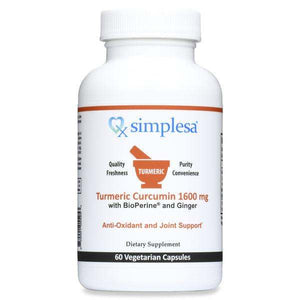How to Kickstart 'New Year New Me'?


Related products
New Year New Me
The New Year stands as a symbolic gateway for transformation and personal growth. This period often ignites a collective desire for self-improvement, epitomized by the mantra 'New Year, New Me.' This concept, beyond its pop culture status, is rooted in psychological phenomena. Dr. Rebecca Ray, a clinical psychologist, explains, "The New Year provides a psychological clean slate, encouraging individuals to adopt new habits and discard unhelpful ones." Indeed, the allure of a fresh start is backed by research. A study in the Journal of Clinical Psychology suggests that the New Year acts as a 'temporal landmark', aiding in the dissociation from past failures and fostering a 'new identity'.
The 'New Year, New Me' mindset, though widely popular, demands a strategic approach to translate aspiration into tangible results. The initial enthusiasm of the New Year often wanes, evidenced by a study revealing that approximately 80% of New Year's resolutions fail by the second week of February. This highlights the necessity of structured planning and realistic goal-setting to effectively harness the New Year's motivational surge.
Setting Realistic Goals
The foundation of any successful 'New Year, New Me' initiative is the establishment of realistic and well-defined goals. Dr. Sarah Allen, a leading psychologist specializing in goal-setting theory, advises, "Goals should be challenging yet attainable, providing a sense of accomplishment without setting oneself up for failure." This balance is crucial, as unrealistic goals can lead to demotivation and abandonment of the New Year's resolutions.
Employing the SMART criteria (Specific, Measurable, Achievable, Relevant, Time-bound) is essential in this context. For example, rather than a vague aim like "get fit", a SMART goal would be "attend a 30-minute fitness class thrice a week for three months." This specificity provides a clear roadmap and makes progress measurable. According to a study by the American Psychological Association, such well-defined goals are associated with higher motivation and better outcomes.
Creating a Plan
With goals established, the next step is creating a structured plan. This involves breaking down the overarching goal into smaller, actionable steps. As productivity expert James Clear states, "Success is the product of daily habits—not once-in-a-lifetime transformations." Therefore, the focus should be on developing small, daily actions that contribute to the larger goal.
Utilizing tools like planners or goal-setting apps can aid in maintaining focus and organization. For instance, an app that tracks daily water intake can be instrumental for someone aiming to improve hydration. The key is in the granularity of the plan; as Dr. Allen remarks, "Each small step is a building block towards the larger goal, making the process less overwhelming and more manageable."
Building and Maintaining Motivation
Maintaining motivation is a critical component in the 'New Year, New Me' journey. Motivation can be intrinsic, deriving from personal gratification, or extrinsic, influenced by external rewards. A balance of both is often most effective. Dr. Ray suggests, "Celebrate small victories to provide a sense of accomplishment, while also keeping in mind the intrinsic benefits such as improved health or wellbeing."
Dealing with setbacks is an inevitable part of the process. It's important to view these not as failures but as learning opportunities. A resilient mindset, fostered through positive self-talk and affirmations, can significantly impact one's ability to stay on track. As noted in a study by the University of Pennsylvania, individuals who practiced positive self-talk demonstrated higher resilience and stress management capabilities.
In each of these steps, the key theme of 'New Year, New Me' is evident. The journey is not just about setting goals or planning meticulously; it's about evolving one's mindset and habits to foster lasting change. As the New Year unfolds, it presents an opportunity not just for setting goals but for cultivating a mindset conducive to sustained personal growth and wellbeing.
Incorporating Healthy Habits
Establishing and maintaining healthy habits is a cornerstone of the 'New Year, New Me' philosophy. Identifying habits that align with one's goals is the first step. As Dr. Lisa Marshall, a wellness expert, advises, "Choose habits that directly contribute to your goals and integrate them into your daily routine for consistency." This could range from incorporating a daily 10-minute meditation for stress reduction to preparing a healthy meal each day for weight management.
Consistency and routine are pivotal in habit formation. A study in the European Journal of Social Psychology highlights that it takes, on average, more than two months for a new behavior to become automatic. Establishing a routine, such as a fixed time for exercise, can significantly aid in making these habits stick.
For habit formation, start small and gradually build up. For instance, begin with a five-minute daily walk and incrementally increase the duration. Examples of healthy habits include regular physical activity, balanced eating, adequate sleep, and mindfulness practices.
Seeking Support and Accountability
The role of support systems in achieving 'New Year, New Me' goals cannot be overstated. A support network can provide motivation, advice, and accountability. Dr. Emily Anhalt, a clinical psychologist, states, "A supportive community can be a powerful catalyst for maintaining motivation and accountability."
Creating accountability can involve various strategies, such as finding a mentor, joining support groups, or participating in online communities. These platforms offer a space to share goals, challenges, and successes, fostering a sense of shared journey.
Sharing goals with friends and family also adds a layer of accountability. A study in the Journal of Applied Psychology found that individuals who shared their goals with someone they believed would offer genuine support were more likely to achieve them.
Measuring Progress and Adjusting Goals
Tracking progress is integral to the 'New Year, New Me' process. It allows for reflection on how far one has come and what adjustments might be needed. Dr. Marshall suggests, "Regularly assess your progress and be willing to modify your goals if necessary. This flexibility can prevent frustration and stagnation."
Knowing when and how to adjust goals is as important as setting them. If a goal becomes too easy or too hard, recalibrating it to maintain a balance between challenge and achievability is crucial. Celebrating milestones, no matter how small, can boost morale and motivation.
Maintaining Changes Long-Term
The ultimate aim of 'New Year, New Me' is to integrate changes into one's lifestyle permanently. This requires strategies to avoid reverting to old habits. Dr. Anhalt recommends, "Create an environment conducive to your new habits and remove triggers that lead to old ones."
Embracing a mindset of continuous improvement is key. This involves seeing personal growth as a journey rather than a destination and being open to learning and adapting.
Conclusion
The 'New Year, New Me' journey is multifaceted, involving setting realistic goals, creating actionable plans, building habits, seeking support, measuring progress, and maintaining changes. Each step is integral to the transformation process.
As you embark on this journey, remember that change is a gradual process. It requires patience, persistence, and resilience. Embrace each step as an opportunity for growth and self-improvement. With the right mindset and strategies, the 'New Year, New Me' can become more than just a seasonal mantra; it can evolve into a lifelong journey of personal development and fulfilment.






































 Rated Excellent by 26,523+ Reviews
Rated Excellent by 26,523+ Reviews